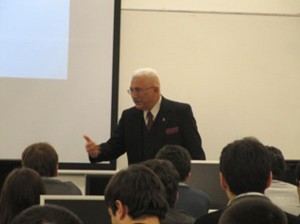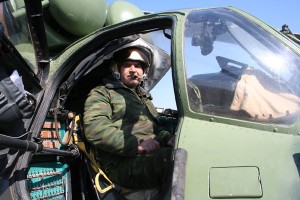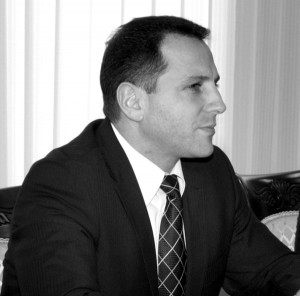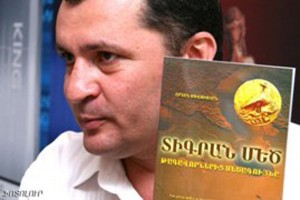Spotlight

The RA Ministry of Culture declares a photocontest on the theme «My and our victories» towards the three celebrations on May 9: the Day of Victory, the 20th anniversary of Shushi liberation and the Day of the Defender of the Nagorno-Karabakh Republic. The best works of the contest will be selected during an open exhibition and will be included in the exhibition dedicated to the Victories of May. Monetary awards should be given to the winners. The deadline for work submission is April 5. The contest winners will be announced on April 15.

On March 13 “Synopsis Armenia” hosted the meeting of the Winners club members, awarded with the annual educational award of the RA President in the sphere of Information Technologies, with Major General Hayk Kotanjyan, head of the National Strategic Research Institute of the RA Defense Ministry, President of the Armenian Association of Political Sciences, Doctor of Political Sciences. The opening speech was made by Hovik Musayelyan, President of the Competition Commission of the RA President`s annual educational award, introducing the guest of the meeting and his past way.

The aviation military unit under the command of Colonel S. Sianosyan in 2011 was again recognized the best in the arm of service, and was awarded by the order of Defense Minister Seyran Ohanyan with a flag of honour for the third time incessantly. The martial helicopter squadron Mi-24 is recognized the best in the military unit for already fourth time. The squadron staffs carry out several important tasks each year, improve their mastery during military tranings, put the tactical ideas and programs of the fighting arm officer staff to test.

In an interview given to Lragir.am David Tonoyan, ARM First Deputy Defense Minister, spoke about Armenia-NATO interrelations. He noted that Armenia takes part in the NATO-led ISAF activities even with a larger regiment than that of some NATO member-countries, holds systemized consultations in the political, security and defense sectors, organizes military trainings and recently for the first time in the history North-Atlantic Council+Armenia meeting took place with the participation of the RA President.

The ancient period of the history of the Armenian nation is badly studied. In the Soviet years the tendency of the equality of the nations didn’t allow to confess that next to the nations having a history of centuries Armenia has a history of millenniums. The tree nations of Transcaucasia – the Armenians, the Georgians and the Azeri were considered the heirs of Urartu – the oldest slaveholding country of the territory of the Soviet Union and it was a complete falsification and nonsense. It was just then when the theory of Armenians as newcomers was created. Developing this theory, the Turkish came to a new nonsense: according to them the newly arrived Armenians have annihilated the Turks of Urartu and have settled in their country.

Patriotism means doing work and I know no other way of loving your fatherland. Patriotism is a responsibility for the fate of the fatherland. I often think that the soldiers are standing on the borders of fatherland every moment, one replaces the other but they are always in the rank, they cannot be off their guard, they can’t display unconscientiousness even for a moment and leave the border defenseless. We also must be vigilant every moment, be in the rank and do something for our fatherland for the soldier keeping our border and for each other to the extent of our abilities.

The word Azerbaijan and Azeri have only a history of 90 years, they came out only after 1918. The word Azerbaijan in fact is the deformed variant of Atrpatakan. The Azeri are the followers of Caucasian Tatars. Those nomadic tribes settled in the second half of the 19th century on demand of the czarist government. Constantly moving from one place to another the Caucasian Tatars caused a lot of trouble and the Russian government threatened to expel them from the borders of the empire if they didn’t settle down.











